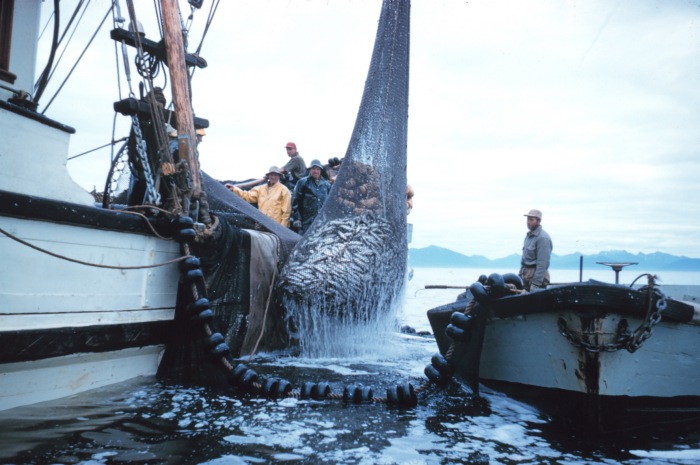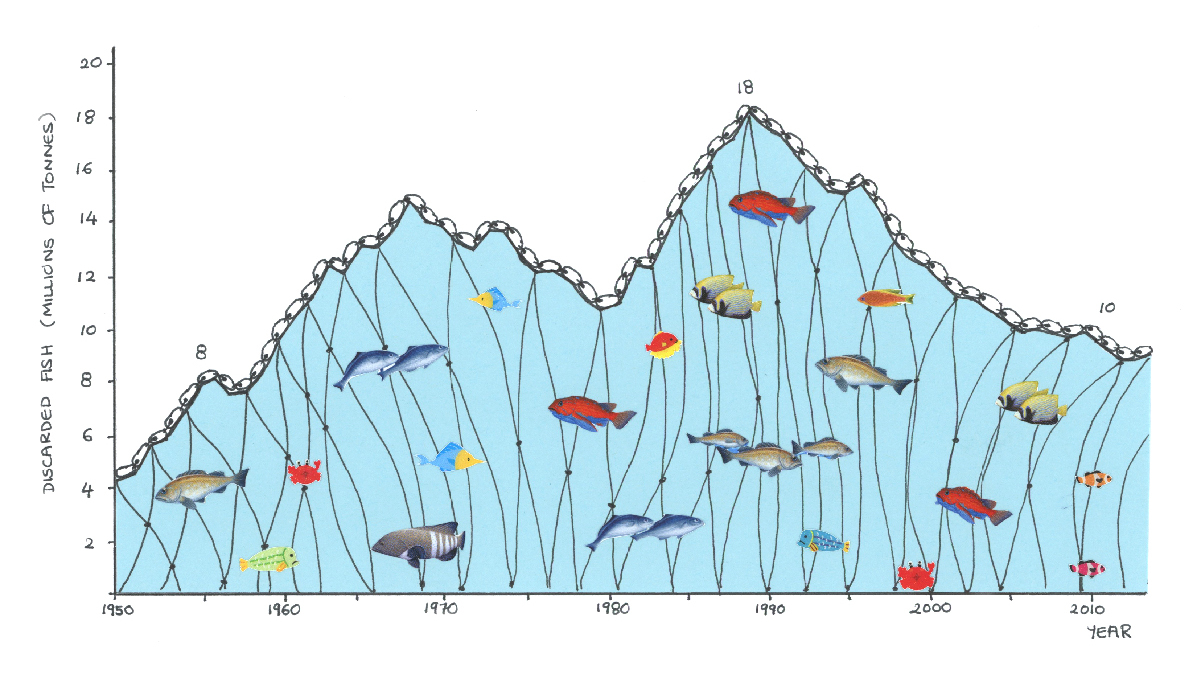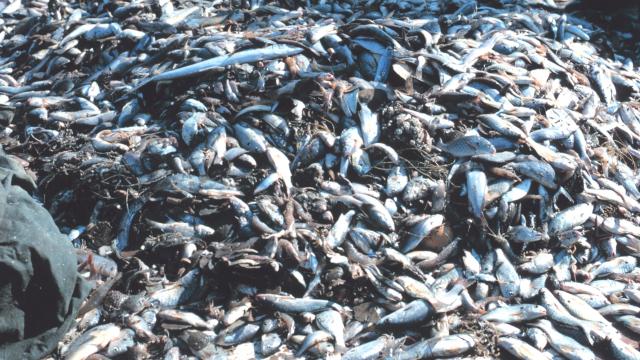New research shows that industrial fisheries are responsible for dumping nearly 10 million tonnes of perfectly good fish back into the ocean each year — enough to fill 4500 Olympic-sized swimming pools. This news comes at a time when nearly 90 per cent of the world’s fish stocks are threatened by overfishing.
Shrimp bycatch. (Image: NOAA)
The research, published in the science journal Fish and Fisheries, shows that roughly 10 per cent of the world’s annual catch is tossed back in the ocean. This waste happens for a number of reasons, including fishing practices that damage fish (making them unmarketable), throwing back fish that are too small or out of season, or because only part of the fish needs to be harvested (for example, Alaska pollock roe). In some cases, fishers caught species they weren’t targeting (called bycatch), or they continue to catch fish even though they have caught enough, which they do in hopes of scooping up bigger fish (called high-grading).
“In the current era of increasing food insecurity and human nutritional health concerns, these findings are important,” noted Dirk Zeller, a researcher at the University of Western Australia and the lead author of the new study, in a statement. “The discarded fish could have been put to better use.”

Alaskan fishermen in 1975. (Image: NOAA)
For the study, the researchers examined the amount of fish that has been discarded over the past six decades. Estimates were made for all major fisheries around the world relying on, in the words of the authors, “a wide variety of data and information sources and on conservative assumptions to ensure comprehensive and complete time-series coverage.” Their analysis shows that five million tonnes of fish were discarded annually in the 1950s, a figure that skyrocketed to 18 tonnes annually by the late 1980s. This figure dropped to less than 10 million tonnes over the last decade.
Disturbingly, the authors think these numbers are going down at least in part because of overfishing. Fishing operations are now catching fewer fish each year, so there’s less to dump back into the ocean.

Fish dumped back into the ocean, 1950-2010. (Image: D. Zeller et al., 2017)
Fish waste happened primarily in northern Atlantic waters in the earlier decades (1950s to 1980s), after which time it shifted to Northwest Pacific and Western Central Pacific waters. Indeed, this study has uncovered a disturbing trend: Fishing fleets are moving to new waters when there are no more fish to catch.
“The shift of discards from Atlantic to Pacific waters shows a dangerous trend in fisheries of exporting our fishing needs and fishing problems to new areas,” said study co-author Tim Cashion, a researcher from the University of British Columbia.
Overfishing happens when more fish are caught than the population can replace through reproduction, and it’s become a serious problem. Billions of people rely on fish for protein, and the fishing industry employs a lot of people. But as the World Wildlife Fund points out, more than 85 per cent of world’s fisheries — and possibly as many as 90 per cent — have been “pushed to or beyond their biological limits and are in need of strict management plans to restore them“.
[referenced url=”https://gizmodo.com.au/2016/03/we-could-double-the-number-of-edible-fish-in-the-ocean-by-2050/” thumb=”https://i.kinja-img.com/gawker-media/image/upload/t_ku-large/gwbilkf69r9holeeey5a.jpg” title=”We Could Double The Number Of Edible Fish In The Ocean By 2050″ excerpt=”Time and again, our appetite for tasty seafood pushes our favourite species to the brink of collapse. We’ve seen it with North Atlantic cod, Pacific bluefin tuna and Peruvian sardines. But it doesn’t have to be this way. A new study finds that the majority of the planet’s fisheries could be sustainable within ten years, and commercial fish stocks could double by 2050 — if the world adopted a few common-sense management strategies.”]
Experts are not calling for an end to fishing, but rather the establishment of sustainable management practices, such as honouring fishing quotas, allowing enough time for fish stocks to become replenished, responsible aquaculture — and as this new study makes painfully clear, reducing unnecessary waste. Should this be done, there will continue to be plenty of fish for all of us.
